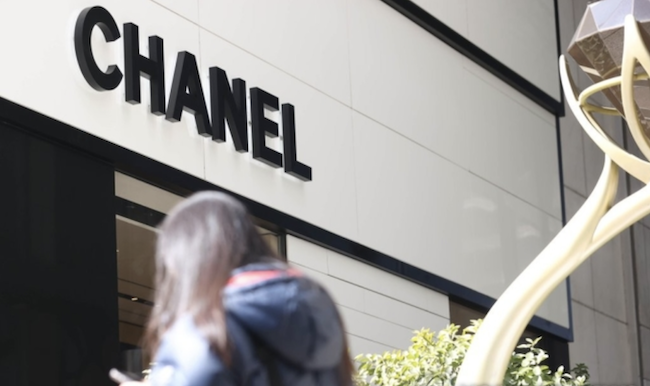
Chanel was the most popular luxury brand for resale in 2023, according to a recent report, with younger South Koreans actively trading in second-hand “luxury” items. (Image courtesy of Yonhap)
SEOUL, May 3 (Korea Bizwire) — Chanel has emerged as the most frequently counterfeited brand online in South Korea over the past five years, according to new government data that highlights the growing challenge of policing illicit e-commerce activity involving luxury goods.
A report submitted by Rep. Oh Se-hee of the Democratic Party, a member of the National Assembly’s Industry, Trade, and SMEs Committee, revealed that online detections of counterfeit products have risen by an average of 16 percent annually between 2020 and 2024. The data, compiled by the Korea Intellectual Property Protection Agency, stems from the agency’s Remote Monitoring Unit, which tracks counterfeit sales across 12 major online marketplaces, two portal sites, and three social media platforms.
In 2024 alone, more than 225,000 instances of online counterfeit sales were detected — up from roughly 126,500 in 2020.
Chanel topped the list of affected brands with 138,082 cases during the five-year period. It was followed by Louis Vuitton (101,621), Gucci (92,505), Christian Dior (46,621), Prada (40,759), Nike (38,329), Celine (28,419), Balenciaga (28,114), and Saint Laurent (20,768).
By product category, handbags were the most counterfeited item, with 309,420 cases recorded. This was followed by apparel (234,894), shoes (139,326), accessories (67,848), wallets (47,682), and watches (41,624).
Sellers reportedly used keywords such as “mirror grade,” “authentic-level,” and “unauthorized replica” to advertise counterfeit goods, often attempting to disguise the illicit nature of the products.
Despite efforts by the monitoring unit, Rep. Oh warned that enforcement still lags behind the speed of distribution. “While the number of counterfeit detections has steadily increased, current efforts remain insufficient to contain the pace of illicit online trade,” she said. Oh called for the deployment of advanced AI-driven surveillance tools and the expansion of proactive investigations by the Korean Intellectual Property Office’s trademark enforcement unit.
The government aims to strengthen its digital intellectual property protections amid the global rise of e-commerce and counterfeit trade.
Lina Jang (linajang@koreabizwire.com)
